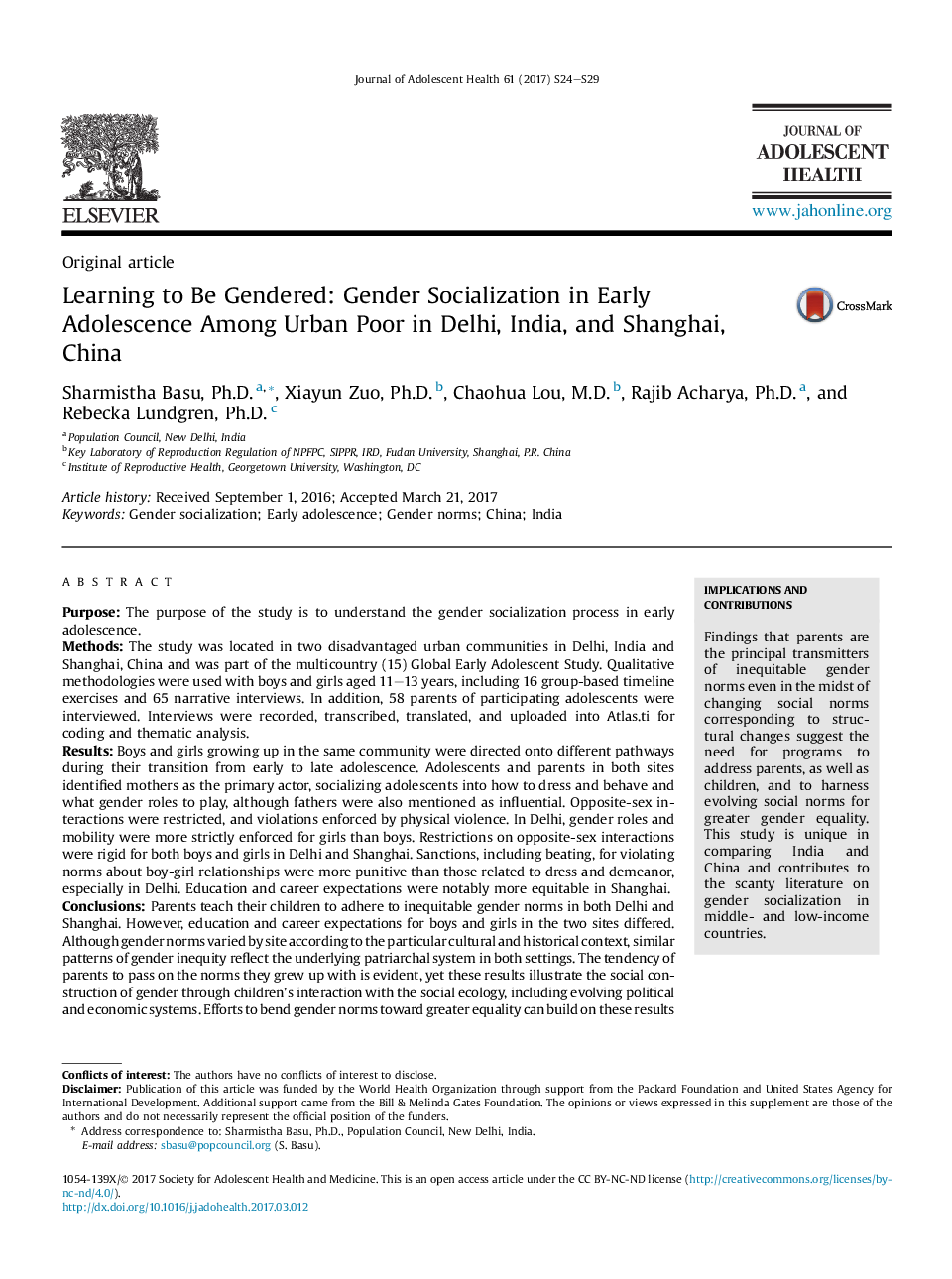| کد مقاله | کد نشریه | سال انتشار | مقاله انگلیسی | نسخه تمام متن |
|---|---|---|---|---|
| 5121201 | 1378290 | 2017 | 6 صفحه PDF | دانلود رایگان |
PurposeThe purpose of the study is to understand the gender socialization process in early adolescence.MethodsThe study was located in two disadvantaged urban communities in Delhi, India and Shanghai, China and was part of the multicountry (15) Global Early Adolescent Study. Qualitative methodologies were used with boys and girls aged 11-13 years, including 16 group-based timeline exercises and 65 narrative interviews. In addition, 58 parents of participating adolescents were interviewed. Interviews were recorded, transcribed, translated, and uploaded into Atlas.ti for coding and thematic analysis.ResultsBoys and girls growing up in the same community were directed onto different pathways during their transition from early to late adolescence. Adolescents and parents in both sites identified mothers as the primary actor, socializing adolescents into how to dress and behave and what gender roles to play, although fathers were also mentioned as influential. Opposite-sex interactions were restricted, and violations enforced by physical violence. In Delhi, gender roles and mobility were more strictly enforced for girls than boys. Restrictions on opposite-sex interactions were rigid for both boys and girls in Delhi and Shanghai. Sanctions, including beating, for violating norms about boy-girl relationships were more punitive than those related to dress and demeanor, especially in Delhi. Education and career expectations were notably more equitable in Shanghai.ConclusionsParents teach their children to adhere to inequitable gender norms in both Delhi and Shanghai. However, education and career expectations for boys and girls in the two sites differed. Although gender norms varied by site according to the particular cultural and historical context, similar patterns of gender inequity reflect the underlying patriarchal system in both settings. The tendency of parents to pass on the norms they grew up with is evident, yet these results illustrate the social construction of gender through children's interaction with the social ecology, including evolving political and economic systems. Efforts to bend gender norms toward greater equality can build on these results by empowering children and parents to reflect critically on inequitable gender norms and roles and by mobilizing economic and social support at key turning points in adolescents' lives.
Journal: Journal of Adolescent Health - Volume 61, Issue 4, Supplement, October 2017, Pages S24-S29
